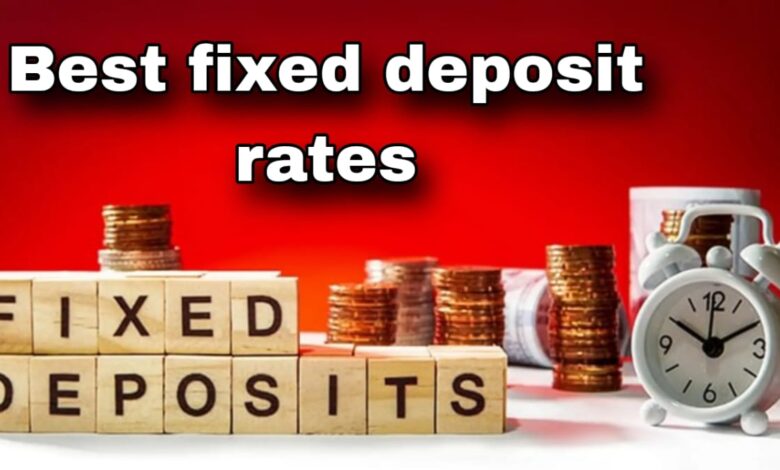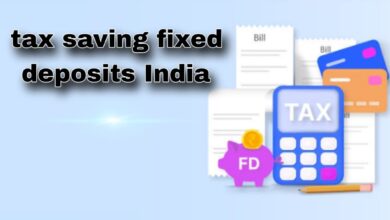Best Fixed Deposit Rates in India: An In-Depth Guide

Fixed deposits (FDs) are one of the safest and most popular investment options in India. They offer guaranteed returns and a predictable income, making them an ideal choice for risk-averse investors. However, the interest rates on fixed deposits can vary from one bank to another and change over time due to economic conditions. In this article, we’ll explore the best fixed deposit rates in India for 2024, how to choose the right FD, and the factors that affect FD interest rates.
Understanding Fixed Deposits
A fixed deposit (FD) is a financial instrument offered by banks and non-banking financial companies (NBFCs) in India. It allows investors to deposit a lump sum amount for a fixed tenure, during which the interest rate remains constant. In return, the investor earns interest on their principal, which is typically paid out monthly, quarterly, or at maturity.
Why Invest in Fixed Deposits?
Fixed deposits are a safe and reliable investment option, especially for conservative investors. Here are a few reasons why people prefer investing in FDs:
- Safety: Fixed deposits are one of the safest forms of investment in India, as they are backed by the government and regulated by the Reserve Bank of India (RBI).
- Guaranteed Returns: Unlike stocks or mutual funds, the returns on fixed deposits are fixed, offering predictable income.
- Tax Benefits: Some fixed deposits come with tax-saving benefits under Section 80C of the Income Tax Act.
- Flexibility: Fixed deposits offer flexible tenures, allowing investors to choose the duration that suits them best.
Best Fixed Deposit Rates in India (2024)
The interest rates for fixed deposits in India depend on several factors, including the tenure of the FD, the type of financial institution, and the prevailing economic conditions. Here is a list of some of the best fixed deposit rates offered by top banks in India:
| Bank Name | Interest Rate (1 Year Tenure) |
|---|---|
| State Bank of India (SBI) | 6.75% – 7.0% |
| HDFC Bank | 7.0% – 7.5% |
| ICICI Bank | 6.75% – 7.25% |
| Axis Bank | 7.0% – 7.25% |
| Punjab National Bank (PNB) | 6.75% – 7.0% |
| Kotak Mahindra Bank | 7.0% – 7.25% |
| Yes Bank | 7.25% – 7.5% |
| IDFC FIRST Bank | 7.0% – 7.5% |
| Bank of Baroda | 6.75% – 7.0% |
| IndusInd Bank | 7.25% – 7.5% |
Factors Affecting Fixed Deposit Rates
Several factors influence the interest rates offered by banks and financial institutions on fixed deposits:
- Monetary Policy of the RBI: The Reserve Bank of India (RBI) sets the benchmark interest rates, which directly affect the interest rates on fixed deposits. When the RBI changes its repo rate, banks adjust their FD interest rates accordingly.
- Inflation: The inflation rate in the country also plays a crucial role in determining the interest rates. In periods of high inflation, banks tend to offer higher rates to attract more investments.
- Economic Conditions: During periods of economic uncertainty or when the economy is slowing down, banks may raise FD rates to encourage savings and investments.
- Bank’s Liquidity Needs: If a bank is experiencing a liquidity crunch, it may offer higher interest rates on FDs to attract deposits.
- FD Tenure: Generally, the longer the tenure of an FD, the higher the interest rate offered. Short-term FDs tend to offer lower rates compared to long-term deposits.
- Customer Profile: Some banks offer preferential rates for senior citizens. Senior citizens typically enjoy an additional 0.25% to 0.75% higher rate than regular depositors.
How to Choose the Right Fixed Deposit
When choosing a fixed deposit, it is essential to consider several factors beyond just the interest rate:
- Compare Rates: Compare the interest rates offered by different banks and financial institutions. A slightly higher rate could mean significantly more returns on your investment.
- Consider Tenure: Choose a tenure that aligns with your financial goals. If you need liquidity, opt for shorter-term FDs; if you’re looking for higher returns, go for long-term FDs.
- Look for Tax Benefits: Some banks offer tax-saving fixed deposits under Section 80C of the Income Tax Act. These FDs offer tax deductions up to ₹1.5 lakh annually.
- FD Premature Withdrawal: Check the terms for premature withdrawal, as many banks charge a penalty if you withdraw your FD before maturity.
- Reinvestment Option: Many banks offer the option to reinvest your FD interest, which can help compound your returns. If you don’t need the interest income immediately, this option can boost your returns over time.
Pros and Cons of Fixed Deposits
Pros:
- Safety and Security: FDs are a low-risk investment, especially compared to the stock market.
- Fixed Returns: You know exactly how much return you will get, which helps with planning your finances.
- No Market Risk: FDs are not affected by stock market fluctuations, providing peace of mind for risk-averse investors.
Cons:
- Lower Returns in High Inflation: In times of high inflation, the returns from FDs may not be enough to keep up with the rising cost of living.
- Taxable Income: The interest earned on FDs is taxable, which may reduce your overall returns, especially for higher-income earners.
- Liquidity Issues: Fixed deposits lock your money for a certain period, and early withdrawal often incurs a penalty.
Conclusion
Fixed deposits are a reliable and safe way to grow your money over time. While the interest rates may not be as high as those of equity-based investments, they offer guaranteed returns and are ideal for conservative investors. When choosing the best fixed deposit, it is essential to compare rates, understand the tenure, and consider the associated tax implications. By following these guidelines, you can ensure that your fixed deposit investment helps you meet your financial goals in 2025.


